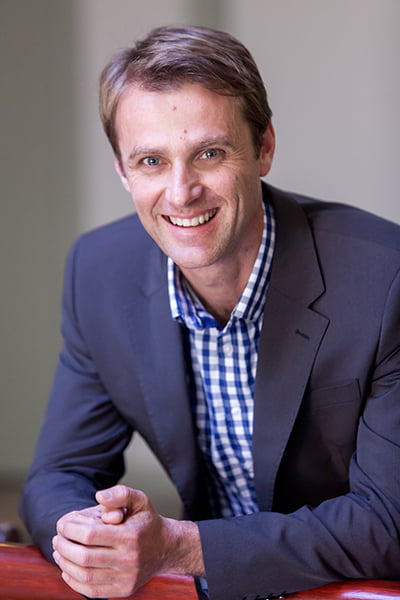Over the last decade, I have witnessed the corporate sustainability agenda mature and evolve. It has been fascinating (and frustrating) to watch how companies emerge as either sustainability leaders or laggards on the basis of their response to an increasing emphasis and urgency on managing sustainability issues across sectors, globally.
The answers to why a company is ahead of the curve versus one that lags behind can usually be found at the top. The attitude of the CEO and CFO, the two people who traditionally have the last say in where money gets spent based on a company’s strategy and objectives, set the trajectory for an organisation’s business journey.
Over the last decade of being in the corporate sustainability trenches, I have witnessed many of the bold and exciting sustainability plans we proposed halted by the CFO. Often the longer-term value of ambitious sustainability strategies is dismissed by CFOs in favour of short-term priorities that serve the bottom line.
For a long time, sustainability was regarded as a distraction to core business activities and relegated to the sidelines as a box-ticking exercise for the corporate social responsibility, marketing, HR or facilities departments to manage.
At one stage I was convinced that while CFOs and the accounting fraternity at large certainly understood the cost of everything, they didn’t take the time to fully understand the value of everything. I am even more convinced now than I was then that unless attitudes change, the corporate sustainability agenda will continue to advance at a lower than required pace.
Time’s up for the greenwashing cycle
Today governments’ response to climate change and decarbonisation is no longer voluntary, but increasingly a mandatory requirement. This is becoming true for many ESG parameters. ESG has officially grown up and has emerged as a material risk across all sectors. It is essential for companies to understand their ESG risk profile and prove that they are managing it effectively through clear and accurate disclosure.
For example, the urgent pressure we are now seeing for companies to address climate change shouldn’t come as a surprise to anyone. It was inevitable that carbon emissions would need to be reduced to zero if we were to continue living on this planet. Most companies are just playing catch up. The difference is that this increased pressure is now coming from a more diverse set of external stakeholders such as:
- Investment analysts are being pressured to make investment and finance decisions based on ESG performance.
- Increased regulation and compliance requirements that require accurate and reliable disclosure of non-financial ESG metrics.
- Holistic ESG requirements right through a products value chain.
- Increased awareness by consumers who scrutinise products and services for their sustainability credentials.
Time’s up for the greenwashing cycle as the pressure on corporates intensifies. The judgement day for companies that have profited hugely at the expense of the environment and the local communities they operate in is here. The space to hide their exploitative and destructive activities have been greatly diminished.
And this is why the CFO is such an important cog in the sustainability wheel. Up until recently, companies had an obligation to comply with only one part of their impact, the financial one. For the first time, companies are now being forced to track and report on their non-financial (ESG) impacts, so-called externalities, never before considered as part of the commercial equation.
The rising role of the CFO
We have witnessed an increasing number of iconic CEOs showing bold leadership on this issue, like Unilever’s Paul Polman, Ray Anderson of Interface Carpets and Yvon Chouinard of Patagonia. However, it hasn’t been till now, as the sustainability agenda evolves, that the CFO is fast emerging as a logical leader. It is not surprising as reporting on ESG risk is now considered in certain sectors to be as critical as financial reporting, a function that clearly sits in the finance department, led by the CFO.
Investopedia defines the role as follows: “A CFO has multiple duties, from financial reporting to deciding where and when to invest company funds. A CFO oversees the capital structure of the company, determining the best mix of debt, equity, and internal financing. Addressing the issues surrounding capital structure is one of the most important duties of a CFO.”
It is certainly a glaring omission that the word “sustainability” is not used in the definition of a CFO, which, in my view, should be the crux of their role. We can definitely assume that the role of the CFO is to ensure the overall sustainability of the company through the creation, maintenance and allocation of value in the enterprise, allowing it to not only survive but thrive long into the future.
To do this, we need to see into the future, and right now, the future looks very different to what we have become accustomed to. There are some serious challenges that were caused by the corporate world that need to be addressed to ensure that questionable behaviour ceases and is not repeated.
Every company is being forced to take a wider view of what performance means to them, beyond making money at all costs. If companies refuse to take heed and consider a wider view of their enterprises, capital will cost more or even cease flowing, investors will stop buying their shares, customers will turn to competitors for more sustainable and ethical alternatives, and non-compliant companies will lose their license to operate.
So where is the CFO relevant? Well, Everywhere.
Core to their role is ensuring the flow and consolidation of data to provide compliant, verifiable disclosure to be consumed and used in the public domain to inform investment and financing decisions. It is fast being considered a fiduciary duty of company directors to produce both accurate and reliable financial AND non-financial disclosure. This may seem like a simple affair, however, finance departments take for granted the benefit of a mature financial accounting protocol leveraging embedded technology and processes to manage, track and report on financial performance. In contrast to this, most companies today still use a sustainability manager and an Excel spreadsheet, expecting to produce the same disclosure compliance requirements as their financial disclosure with an equivalent amount of non-financial ESG data.
Furthermore, with the fragmented nature of reporting and disclosure, due mainly to the lack of maturity of the ESG space, investors require companies to submit data and metrics to a plethora of standards and frameworks that, with the current resourcing and infrastructure, causes significant stress in the business and an incidence of error resulting in inaccurate and unreliable public disclosure.
It’s not that the CFO will need to know everything there is to know about ESG and develop and implement the company’s ESG roadmap. I have always maintained that this responsibility should fall on the shoulders of the strategy and risk unit. They should definitely be the custodians of this ESG strategy supported by the finance department to ensure that once developed, it is embedded and integrated into the business. Effectively, the CFO becomes key in accounting for the impact of the strategy, both in financial and non-financial accounting approaches. To manage this effectively requires cross-divisional cooperation to gain a broader, enterprise and systemic view of the company’s broader impacts.
Sustainability is in the CFOs hands
Sustainability should not be seen as another department in a company but rather as a transformational philosophy that cuts through all traditional business departments. It is only in this way that a company will meet future sustainability goals. For this to happen it needs to be fully integrated and embedded into the company’s business strategy, values, culture and broader stakeholder engagement, rather than an adjacent activity that currently seems to be the norm.
CFOs should take the lead in establishing transparency around sustainability by implementing sustainability dashboards for accurate data management, performance benchmarking and reporting. Without the ability to track and report on sustainability metrics, CFOs will be unable to meet both investor and management requirements.
Probably the biggest reason for CFOs getting to grips with all of this is the maturing of sustainable finance. The cost of financial instruments such as green bonds, ESG ETFs and loans are now linked to a company’s ESG performance. These financial instruments have all exploded in scale and value and the exponential growth trend seems to be continuing as a norm, into the future. CFOs need to be the ones driving ESG performance to ensure that their companies attract the best financial partners at the lowest cost.
The finance department is also well-positioned to inform employee and executive incentive schemes, to help drive positive impact through improved behaviour change allowing the company to meet its ESG goals. They can also enable internal carbon pricing and trading within their enterprise business to drive efficiency as well as create tangible value.
Many CFOs are starting to move away from the convenience of pure return-on-investment decision-making, now considering longer-term value creation and resilience, in their decision-making criteria as well.
There is no question that sustainability accounting and assurance is going to become the domain of the accounting profession eventually. CFOs will be the custodians of the related activities within organisations and will be key to their company’s performance in this area. The pressure is mounting as time ticks on. 2030 is fast approaching for companies committed to meeting their Sustainable Development Goals and each year of inaction that passes makes it more difficult and more expensive to meet the world’s 2050 net-zero carbon obligation.
I have always maintained that there is a massive opportunity for CFOs to get their heads around this space. Instead of there being talk of two CFOs in the future, a financial and a sustainability one, CFOs would do well to consider becoming both. It will stand them in good stead as professionals as well as for the planet.
Kevin James is the CEO of GCX, which he founded in 2012. He is a Director at Zero Waste Technologies, an engineering and waste project development company focused on the commercialisation of waste-to-energy and other circular economy opportunities. He also serves as a Non-Executive Director of Green Building Council South Africa (GBCSA).
Connect with Kevin on Linkedin.









